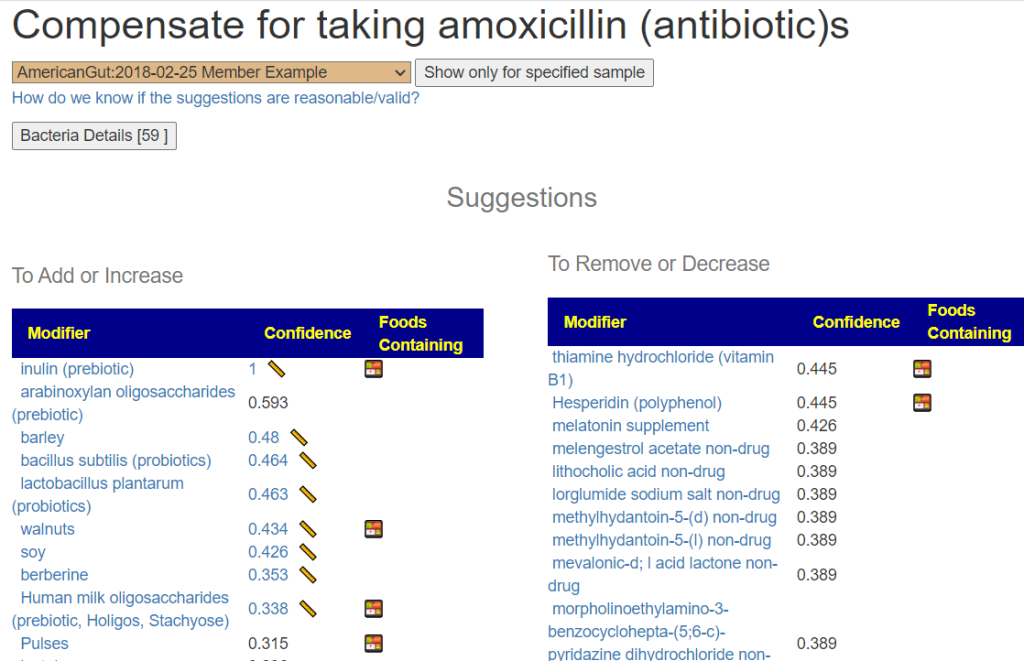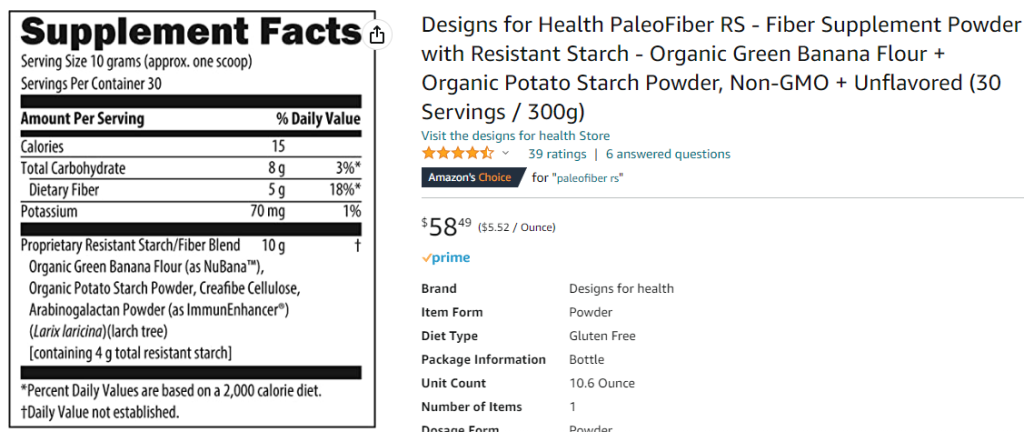The key item is to realize every antibiotic make different changes, often very different changes. Studies on the U.S. National Library of Medicine document many antibiotics and their changes. We use that information and the Artificial Intelligence Engine (which is not Machine Learning or Chat_GPT like) to compute the substances that will best compensate, as well as substances that may amplify the changes caused by the antibiotic.
Process Is Simple
Go to https://microbiomeprescription.com/Library/ModLookup and enter the name of the antibiotic. The database contains most of the brand names used around the world. Enter the name, for example: amoxicillin. Surround it with % % on each end. Click [Search]

This will take you to a page similar to below

The resulting page is shown below

Clicking on Bacteria Detail will list the bacteria that decreases and those that will increase! Yes, antibiotics will encourage the growth of some bacteria.

Below this are the items that impacts these bacteria, Most items impacts multiple bacteria. Balancing the impact is done by the Artificial Intelligence.
In this taking Vitamin B1 supplements (or foods rich in B1) should be avoid for sometime after finishing the course of antibiotics. Similarly with Hesperidin (polyphenol). You may not know what has it — so just click the food icon 🍱 to see the foods:

Similarly with any To Add items that you are not familiar with, for example: resistant starch,

That is it — Lookup, click suggestions, for anything unfamiliar look for the food icon and just click. Often there is no need to buy supplements when you can get sufficient from food. For example, you get 4.3 grams of resistant starch by eating a 100 grams (3 oz).

Postscript – and Reminder
I am not a licensed medical professional and there are strict laws where I live about “appearing to practice medicine”. I am safe when it is “academic models” and I keep to the language of science, especially statistics. I am not safe when the explanations have possible overtones of advising a patient instead of presenting data to be evaluated by a medical professional before implementing.
I cannot tell people what they should take or not take. I can inform people items that have better odds of improving their microbiome as a results on numeric calculations. I am a trained experienced statistician with appropriate degrees and professional memberships. All suggestions should be reviewed by your medical professional before starting.
The answers above describe my logic and thinking and is not intended to give advice to this person or any one. Always review with your knowledgeable medical professional.
Recent Comments